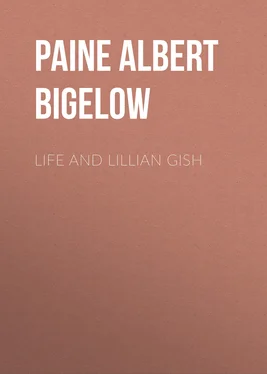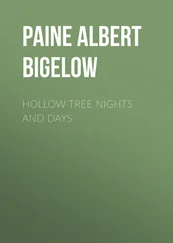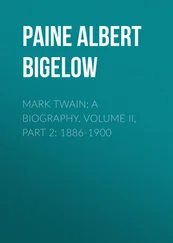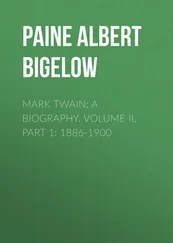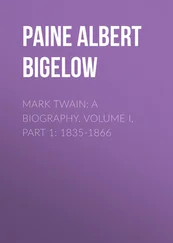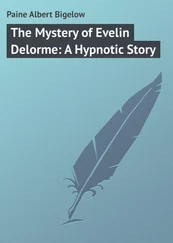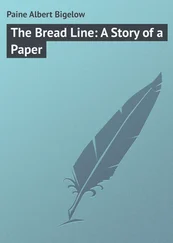Albert Paine - Life and Lillian Gish
Здесь есть возможность читать онлайн «Albert Paine - Life and Lillian Gish» — ознакомительный отрывок электронной книги совершенно бесплатно, а после прочтения отрывка купить полную версию. В некоторых случаях можно слушать аудио, скачать через торрент в формате fb2 и присутствует краткое содержание. Жанр: foreign_prose, foreign_antique, на английском языке. Описание произведения, (предисловие) а так же отзывы посетителей доступны на портале библиотеки ЛибКат.
- Название:Life and Lillian Gish
- Автор:
- Жанр:
- Год:неизвестен
- ISBN:нет данных
- Рейтинг книги:3 / 5. Голосов: 1
-
Избранное:Добавить в избранное
- Отзывы:
-
Ваша оценка:
- 60
- 1
- 2
- 3
- 4
- 5
Life and Lillian Gish: краткое содержание, описание и аннотация
Предлагаем к чтению аннотацию, описание, краткое содержание или предисловие (зависит от того, что написал сам автор книги «Life and Lillian Gish»). Если вы не нашли необходимую информацию о книге — напишите в комментариях, мы постараемся отыскать её.
Life and Lillian Gish — читать онлайн ознакомительный отрывок
Ниже представлен текст книги, разбитый по страницам. Система сохранения места последней прочитанной страницы, позволяет с удобством читать онлайн бесплатно книгу «Life and Lillian Gish», без необходимости каждый раз заново искать на чём Вы остановились. Поставьте закладку, и сможете в любой момент перейти на страницу, на которой закончили чтение.
Интервал:
Закладка:
There was an old bicycle at Massillon, a rusty old thing without tires, but it would go. It was too big, of course, but Lillian had got it out of the woodshed and lowered the seat, and had been able to get on it, and fall, and get on and fall again, and by and by to get on and stay there. She had really learned to ride it—that was something.
Almost anything was likely to happen at “the farm”—mostly pleasant things, but not always. There was an insane asylum in Massillon, and when one of the inmates escaped, which happened every little while, the asylum whistle blew, and timid people locked their doors. Aunt Emily at such times sent her nieces to the attic, or cellar. They did not like those places, and were not afraid, anyhow. They were more afraid of a cow that had chased them from a back field.
Lillian reflected that once she had been really quite wicked: A black thundercloud was rising in the west, just as she was starting to see her friend, Marion Benedict, down the street. Lillian never minded lightning, but her aunt was terribly afraid of it and begged her not to go and leave her.
“But I told Marion I would come!”
“But you can go later—afterwards.”
“But I want to go now.”
“Oh, dear, I believe you love Marion Benedict better than you do me.”
“Yes, I do.”
How awful to have said such a thing to dear Aunt Emily, who was so shocked that never in the world would she forget it! Perhaps it had been the lightning in the air.
Once, a cousin had come to see them—a second cousin, named Leonard Hall, about her own age. Their mother was there, and had dressed them up for the occasion—white dresses, their hair loose, with big pink bows; they had been almost as nice as dolls. She had thought her boy cousin quite nice, too, for a boy—and boy cousins were so scarce. She had hoped he would play with them … but he would hardly even look at them—edged away, and then ran, almost as if something were after him … and didn’t come back any more. She wondered why. They had on all their prettiest things, and Dorothy at least had been a perfect picture.
Lillian reflected on these matters as she rode along, or looked from a hotel window. If she went to Massillon this summer, would she see her cousin again? And Buster, and Marion Benedict? Would she stay there, now, and go to school, or go back to the road for another season? She thought dreamily of these and other things. She did not trouble much, about the future, or the past—then, or later. She followed a kind of magic path, that opened before, and closed behind her as she passed along.
There came a season when the theatrical business was poor. The road companies, especially, suffered. Their profits became more than ever precarious. Motion picture shows were cutting into their business. One-night-stand theatres were being converted into “picture palaces,” and “nickelodeons,” that offered pretty good entertainment at ridiculously low prices, and had very light “overhead.” The combinations, the smaller ones, with their salaries and railroad fares, could not compete. Lillian went out with quite a pretentious company, and a play which was “sure to get to New York and make a hit on Broadway.” It did not get much further than Washington, where it opened. At Baltimore, or Richmond, it came to grief. The company had trouble getting home. At a later time, Lillian wrote: “When we were ambitious and went into better productions, the plays seemed to fail.” But this was due rather to the new conditions in the amusement world, than because of the plays themselves. The “movies” had filed a claim on the melodrama. One could scorn them, as many did in the beginning, but the handwriting was on the wall.
Mary Gish wondered what was best to do next. She had saved some money, but with nothing coming in, how quickly it would go.
For one thing, she must have a new dress. The children said so, quite insistently, and she knew they were right.
“We begged her to buy a new one. Finally, one day, she bought some Alice-blue material and made herself a gown. She always made all the clothes, herself. Then we begged her to get a new hat. So she went to the five-and-ten-cent store, and bought a frame for a little toque, and covered it with little five-and-ten roses. She looked so pretty in her new things—and we were all so happy. We thought everything so beautiful. She was not to wear them until Easter.
“We lived in furnished rooms over by Eighth Avenue, away up I don’t know how many flights, next the roof. Mother put her dress on a hanger, and hung it in a closet, with the hat over it. We all gathered to admire it. It was such an event for mother to have a new dress.
“That night there came up a terrible rain, and the roof over the closet leaked. The water came through in streams, and ran down over mother’s new hat, and the color came out of the lovely five-and-ten roses and dripped all over the new Alice-blue dress. It was ruined. We all cried over it; it was a real tragedy.”
XIII
WHERE THE “ROAD” ENDS. NELL
News came to Mrs. Gish that a brother in St. Louis had died, leaving a widow. She took the children to Massillon, went to St. Louis, and with her sister-in-law, opened a confectionery and ice-cream parlor, in East St. Louis, a rather drab railroad town across the river.
The business started off very well. Railroad men were good wage-earners, and East St. Louis was full of them. In a way, it was what Mary Gish had been looking forward to: her children would no longer be wanderers; they would go to school.
Lillian and Dorothy, in Massillon, probably did not suspect that their day as child actors was definitely over. Nor that they were among the last of their race. Their little world had come to an end—“A curious, romantic, gypsy world,” Lillian called it later, “and rather beautiful, I think.”
But this was long after. They did not think of it as beautiful, then, and would have concealed their connection with it, if they could. The children in the Massillon school shouted “Play-actor! Play-actor!” at Dorothy, and “Do what you used to do on the stage!” They did not harry Lillian in this way: she was older, and taller, and there was something about her face … they stood in awe of her. Someone named her the “chameleon girl,” because she seemed to change the “coloring of her personality (her mood) in the flash of an eye.”
Lillian does not remember where she first met “Nell”—Nellie Becker, a sweet-faced, happy-hearted girl, somewhat older than herself. Lillian was tall for her years, and serious-minded—the difference did not count. What did count was their instant attraction to each other. Beginning in what school-girls know as a “crush,” it presently ripened into something less fleeting, something that was to stand the wear of years. Each was the other’s ideal—the companion of which she had dreamed. They shared their hearts’ secrets, read books together. A fine young fellow, named Tom, was going to marry Nell one of these days; a boy called “Alb,” for short—a very proper boy, particular about his umbrella and overshoes—appears to have been wishfully interested in Lillian, who, being of a sober turn and not yet thirteen, was not too violently disturbed by his attentions. Whatever romantic love she had, she gave to Nell. When, at the end of the summer, she joined her mother in East St. Louis, she wrote frequent letters, though letter-writing was always her bane.
Not many girls of her age would have set out on a long railroad trip, with changes, but rail travel had few terrors for the child actress, who for six or seven years had known little else. She stopped over in Dayton, to see her Grandfather, and her first letter, with its very plain, school-girl writing, some uncertainty as to spelling, and a large indifference to punctuation, is dated from there: September 12, 1909:
Читать дальшеИнтервал:
Закладка:
Похожие книги на «Life and Lillian Gish»
Представляем Вашему вниманию похожие книги на «Life and Lillian Gish» списком для выбора. Мы отобрали схожую по названию и смыслу литературу в надежде предоставить читателям больше вариантов отыскать новые, интересные, ещё непрочитанные произведения.
Обсуждение, отзывы о книге «Life and Lillian Gish» и просто собственные мнения читателей. Оставьте ваши комментарии, напишите, что Вы думаете о произведении, его смысле или главных героях. Укажите что конкретно понравилось, а что нет, и почему Вы так считаете.
